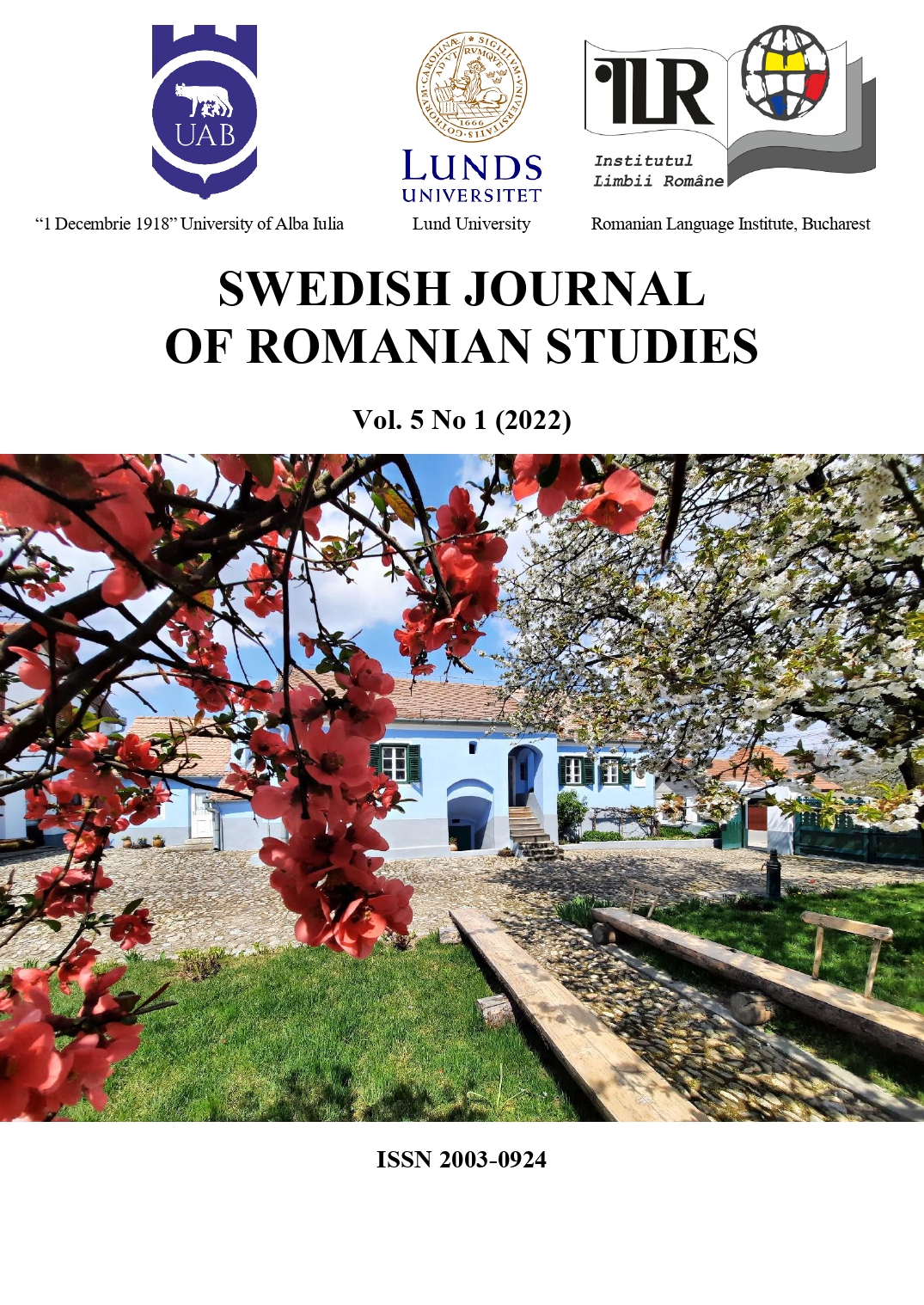History of states, history of individuals. Eminescu on Austria and the Romanian Principalities
DOI:
https://doi.org/10.35824/sjrs.v5i1.23805Keywords:
Eminescu, Austria, Romanian Principalities, classes, foreignersAbstract
The present article aims to offer excerpts f an essential article by the Romanian “national poet” Mihai Eminescu in the English translation, with a historical commentary. The translation aims to make Eminescu’s text available to an international audience of scholars, helping to write a more accurate social and cultural history of 19th century Europe. In turn, the commentary aims to show that Eminescu’s political vision, although substantially conservative, incorporated a number of tenets that were to become an inspiration for a number of politicians of highly diverse backgrounds, from the Iron Guard nationalists to the Socialists and Communists. Eminescu’s work was used, in ways he could no longer control, in order to legitimize their varied, and at times downright contradictory, claims.
The article discussed here, on “The Austrian influence on the Romanians in the Principalities” (1876) offered Eminescu the opportunity to cast a critical eye on the state organization of the Romanians. His conclusion is exceedingly pessimistic: their state organization is presented as a failure, with the main sources of this failure being the personal interests of the Romanians themselves, compounded by the influence of foreigners. Hence the society based on corruption, rather than on principles, a society where having a job meant ruling, and not having one, being in opposition. In this gloomy picture, the author singled out a class on whose back the whole people lived: the Romanian peasants. The future of this class could not possibly be bright, as Eminescu expected that it be crushed from within, and “along with it, the state and the nation”. Did he also envisage a solution? In order to escape the situation in which “the proximity of Austria is devastating for us, unless we wake up soon”, Eminescu pinpointed three redeeming elements: stability, labour and economy. In other words, hereditary monarchy, the revocation of privileges for the “proletariat of the pen” and the careful spending of public budgets. The alternatives were the Austrian rule, or the Russian rule, none of which comes across to Eminescu as a solution.
References
Bot, I. (2012). Eminescu explicat fratelui meu/ Eminescu explained to my brother. București: Art.
Bot, I., & Cioabă, C. (eds.) (2015). Eminescu. Versuri din manuscrise/ Eminescu. Verses from manuscripts. București: Humanitas.
Eminescu, M. (1980). Opere IX. Publicistică 1870-1877, Albina, Familia, Federațiunea, Convorbiri literare, Curierul de Iași./ Complete Works IX. Articles in periodicals 1870-1877. Albina, Familia, Federațiunea, Convorbiri literare, Curierul de Iași. București: Editura Republicii Socialiste România.
Eminescu, M. (2021). Poezii/ Poems, Edition supervised by Ilie Barangă. (5th ed.). București: Cartex.
Gregori, I. (2009). Știm noi cine a fost Eminescu? Fapte, enigme, ipoteze/ Do we know who Eminescu was? Facts, enigmas, hypotheses. (2nd ed.). București: Art.
Pavel, C. (2020). On Eminescu’s Philosophy of History: Towards an English Anthology of Relevant Texts. Swedish Journal of Romanian Studies, 3 (1). 241-258. DOI: https://doi.org/10.35824/sjrs.v3i1.21360
Oprea, Al. (1980). Publicistica lui M. Eminescu/ M. Eminescu’s articles in periodicals , in Eminescu, M. (1980). Opere IX. Publicistică 1870-1877, Albina, Familia, Federațiunea, Convorbiri literare, Curierul de Iași./ Complete Works IX. Articles in periodicals 1870-1877. Albina, Familia, Federațiunea, Convorbiri literare, Curierul de Iași. București: Editura Republicii Socialiste România. 3-47.
Stanomir, I. (2003). „Bătrâni și tineri”. Câteva note asupra conservatorismului eminescian./ “The old and the young”. A few notes on Eminescu’s conservatism. Annals of the University of Bucharest/ Political Science, Series, 5. 15-25.
Downloads
Published
How to Cite
Issue
Section
License
Copyright (c) 2022 Cătălin Pavel, Daniel Citirigă

This work is licensed under a Creative Commons Attribution-NonCommercial 4.0 International License.
Authors who publish with this journal agree to the following terms:
a. Authors retain copyright and grant the journal right of first publication with the work simultaneously licensed under a Creative Commons Attribution-NonCommercial 4.0 International License that allows others to share the work with an acknowledgement of the work's authorship and initial publication in this journal.
b. Authors are able to enter into separate, additional contractual arrangements for the non-exclusive distribution of the journal's published version of the work (e.g., post it to an institutional repository or publish it in a book), with an acknowledgement of its initial publication in this journal.
c. Authors are permitted and encouraged to post their work online (e.g., in institutional repositories or on their website) prior to and during the submission process, as it can lead to productive exchanges, as well as earlier and greater citation of published work (See The Effect of Open Access).

